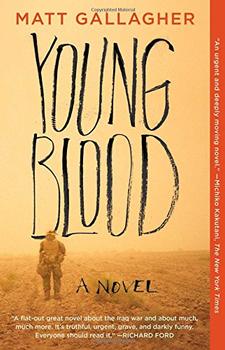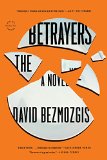Summary | Excerpt | Reviews | Beyond the book | Read-Alikes | Genres & Themes | Author Bio

Beaufort's narrator is Liraz "Erez" Liberti, a twenty-one year
old Lieutenant in the Israeli Defense Force (IDF) responsible for a squad of
thirteen young men. Liberti relates his experiences and those of his men as they
staff an exposed Israeli outpost in Southern Lebanon shortly before and during
its abandonment in 2000. Like many war stories, Beaufort focuses on the
camaraderie that develops between the soldiers as they mature into men. It
explores the men's lives and feelings as they face hours of isolation and
boredom punctuated by periods of terror and violence, as well as the physical
and emotional toll war takes on the men and their families.
This first-person account reads as if it were Liberti's diary,
or a long letter home that Liberti will never mail. As such, the text is a
stream-of-consciousness, particularly in the novel's beginning. It's raw,
it's crass, it's slangy, and it's hard to follow. The first twenty or thirty
pages can be very off-putting, and many readers will abandon it soon after
starting because the style is so foreign. This is unfortunate, since it does
settle down to a more narrative, coherent story after the initial two or three
chapters, and once the reader adjusts to the author's style, they will discover
a realistic and timely coming-of-age novel.
One distraction for some readers could be that almost all the
characters in the book are males in their late teens or very early twenties.
They talk the way men in this age-bracket do when in an unrestrained setting.
There is lots of profanity, bravado and preoccupation with sex. Again, the
initial exposure is a bit like a slap in the face or a cold shower; it's
shocking. Readers sensitive to graphic language should take a pass on this one.
Beaufort is a beautifully crafted work of fiction that reads
more like an autobiography than a novel. Lethem spent hundreds of hours
interviewing Israeli solders stationed in Lebanon before Israel's withdrawal in
2000. The result is a tale that feels entirely authentic. It does exactly what
good historical fiction should do – it educates the reader about a specific time
and place, making them feel as if they're truly present. The reader develops
tremendous empathy for the protagonist and his "kids" (as Liberti refers to his
troops). The narrative draws the reader in completely.
About the Author: 32-year-old Ron Leshem is deputy director in charge of programming at Channel Two, Israel's
main commercial television network. Like most Israeli men, he is a veteran of
the Israel Defense Forces but spent his tour of duty as a self-described "pencil
pusher" who never heard a shot fired in anger. Beaufort, published
in Israel in 2005 as If Heaven Exists, spent 18 months on the
bestseller lists, nine months at No.1 and, in 2006, won the Sapir Prize, Israel's
top literary award. The film version of Beaufort, which
Leshem coauthored with director Joseph Cedar, won the Berlin International Film
Festival's Silver Bear for Best Director. Leshem lives in Tel Aviv and is at
work on his second novel.
![]() This review was originally published in The BookBrowse Review in February 2008, and has been updated for the
February 2009 edition.
Click here to go to this issue.
This review was originally published in The BookBrowse Review in February 2008, and has been updated for the
February 2009 edition.
Click here to go to this issue.

If you liked Beaufort, try these:

by Matt Gallagher
Published 2016
Jarhead meets Redeployment in a suspenseful and smart fiction debut that has been called "thrilling, tragic, and darkly funny" by National Book Award-winning author Phil Klay.

by David Bezmozgis
Published 2015
A compact saga of love, duty, family, and sacrifice from a rising star whose fiction is "self-assured, elegant, perceptive . . . and unflinchingly honest" (New York Times)
No matter how cynical you get, it is impossible to keep up
Click Here to find out who said this, as well as discovering other famous literary quotes!
Your guide toexceptional books
BookBrowse seeks out and recommends the best in contemporary fiction and nonfiction—books that not only engage and entertain but also deepen our understanding of ourselves and the world around us.